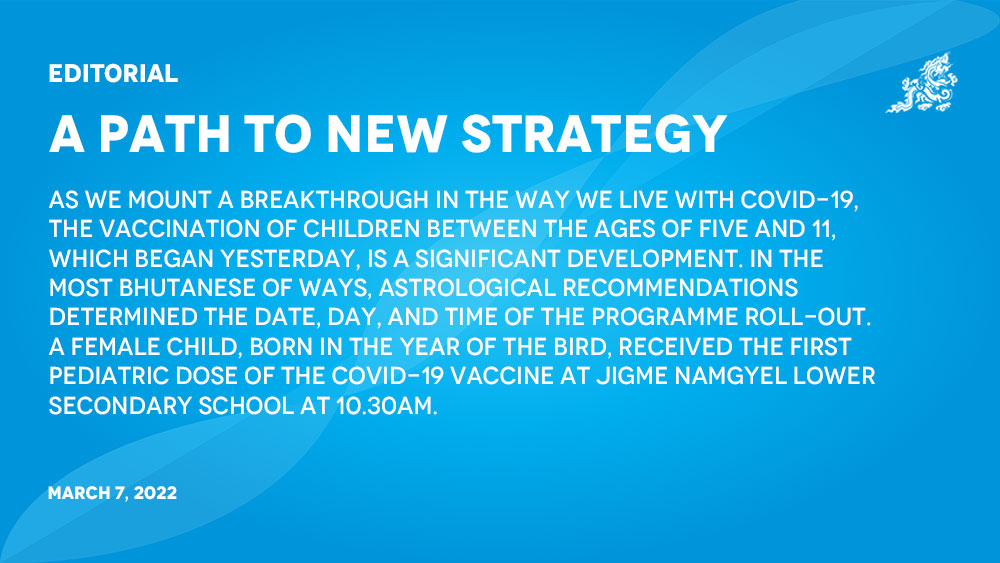As we mount a breakthrough in the way we live with Covid-19, the vaccination of children between the ages of five and 11, which began yesterday, is a significant development. In the most Bhutanese of ways, astrological recommendations determined the date, day, and time of the programme roll-out. A female child, born in the year of the bird, received the first pediatric dose of the Covid-19 vaccine at Jigme Namgyel Lower Secondary School at 10.30am.
The roll-out follows Prime Minister Dr Lotay Tshering’s announcement that from mid-April the country would not resort to lockdowns—in spite of detection of Covid-19 positive cases in the community. No lockdowns whatever the case? That’s not quite true. There will be lockdowns if hospitalisation and bed occupancy rate in isolation wards cross the threshold. New and potentially lethal variants of the virus can also necessitate lockdowns.
What the vaccination of children 5-11 will give us is, more than just protection, confidence to the ongoing Covid-19 management in the country. And it means as we shift to the new Covid-19 management strategy, based on scientific developments, analysis, understanding of the SARS-CoV-2 virus and the results of our own initiatives, communities and individuals are being called to shoulder responsibility of protecting themselves and communities from infection.
“This is a significant milestone as our children from ages 5 to 11 will finally be protected from the disease we have been fighting for over two years,” Prime Minister Dr Lotay Tshering said. “We are talking about 83,227 children in this age group and I urge everyone to come forward.”
However, 65,718 children have registered for the vaccine so far. There are more than 83,227 children in this age group. If the dread and rumours of sickness is what is keeping parents from registering their children, it is important to know that like all other Covid-19 vaccines it is safe. Children will also receive booster shots.
Because vaccines are known to protect even those who test positive, it is recommended that everyone make the best of this opportunity. There is the danger of cases overwhelming us otherwise. The whole shift to the new management must be seen in this light—the responsibility lies on us, individually, to protect ourselves and our communities from infection.


